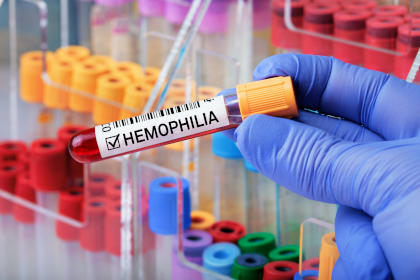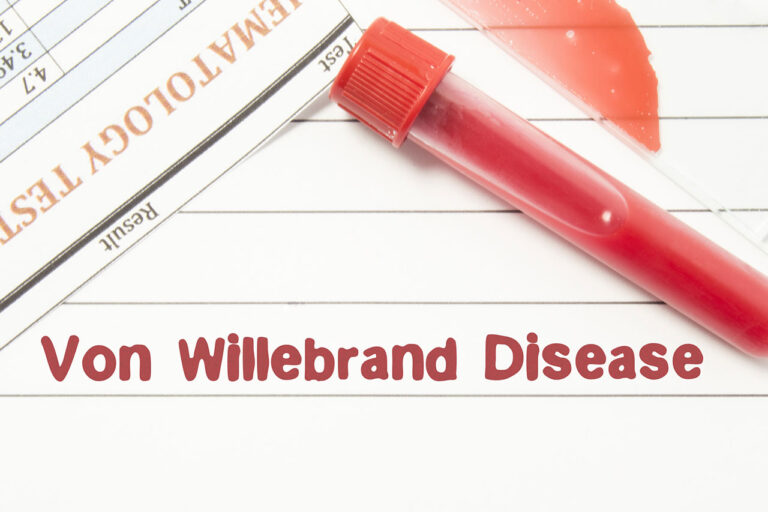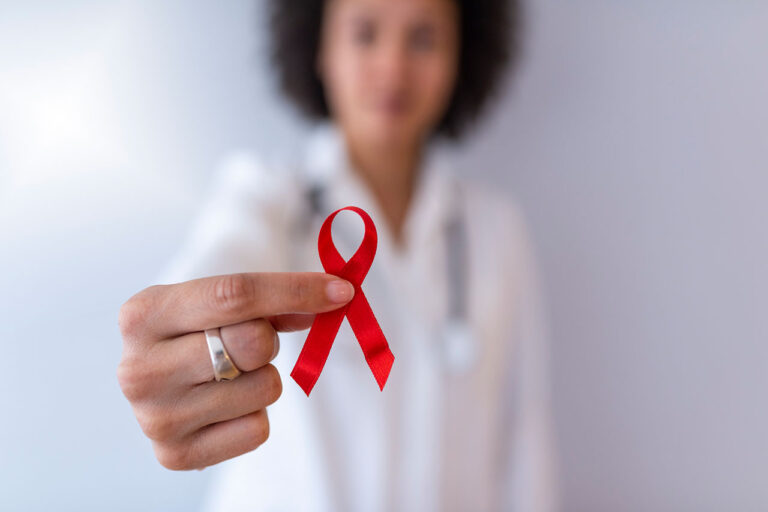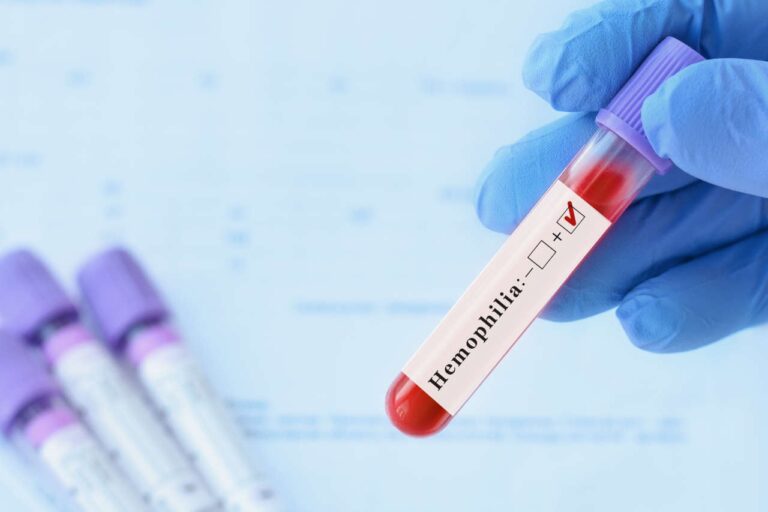
Hemophilia is a rare genetic disorder that affects your body’s ability to form blood clots. As a result, you experience heavy bleeding episodes, even with minor cuts or injuries. This can make your daily life very difficult. With traditional treatments, you can manage this condition, but you have to take medicines regularly. However, advances in gene therapy might provide a more permanent solution. In this article, we will explore everything you need to know about hemophilia gene therapy.
Speak to a Specialist
About Copay AssistanceWhat Is Hemophilia?
Hemophilia is a rare genetic disease where your blood doesn’t clot properly. Normally, your blood contains some proteins called clotting factors that help your blood to clot. But, in hemophilia, a mutation in the X chromosome hampers the production of these clotting factors, leading to bleeding episodes. The fewer clotting factors you have, the more severe your hemophilia [1]. There are two main types of hemophilia. They are:
- Hemophilia A: If you have a shortage of clotting factor VIII, it is known as hemophilia A.
- Hemophilia B: Hemophilia B is when you have a shortage of clotting factor IX.
Hemophilia mostly affects men, due to only having one X chromosome, while women are mostly carriers. Symptoms include long bleeding episodes, bruising or bleeding into the muscles or soft tissues, nosebleeds, and bleeding into the joints. Frequent bleeding into the joints can cause chronic joint damage, fractures, and pain.
Traditional Treatment Options for Hemophilia

The traditional treatment of hemophilia involves the use of clotting factor replacement therapy. In this therapy, you regularly receive missing clotting factors through infusions. It is an effective therapy, but you have to take it regularly, which can be costly and troublesome for some patients. Also, there is a risk of developing inhibitors. Inhibitors are antibodies that your body might produce, which attack the clotting factors. This makes the treatment less effective [1].
Gene Therapy for Hemophilia
Genes are the part of your DNA that tells your cells to produce specific proteins like clotting factors. In hemophilia patients, the genes that tell the cells to produce clotting factors are defective. Hemophilia gene therapy provides a working copy of genes responsible for creating clotting factors in hemophilia patients. It does this by using viral vectors, which are genetically modified viruses. Viral vectors deliver the genes responsible for producing the missing clotting factors to your liver cells. Once the genes enter the liver cells, they tell the liver cells to produce the missing clotting factors. Thus, after some time, their clotting factor levels are restored to nearly normal levels [2].
Hemophilia gene therapy provides some advantages over traditional treatments. It can give you long-term relief from hemophilia, and you might not need regular clotting factor infusions, which can greatly improve your quality of life. In addition, gene therapy increases your clotting factor levels. So you will experience fewer and less severe bleeding episodes. There are a few FDA-approved gene therapy options for hemophilia A and B, which we will discuss below.
Gene Therapy for Hemophilia A
As of October 2024, only one FDA-approved gene therapy is available for hemophilia A, known as Roctavian. It is a one-time gene therapy product that you can take intravenously as a single dose. You must also take anti-inflammatory drugs to make the gene therapy successful. In studies, Roctavian significantly decreased bleeding episodes in hemophilia A patients, and the effectiveness was demonstrated in a group of 134 patients who were monitored for at least 3 years after treatment. Further studies are required to determine its long-term efficacy and safety.
Like any other medicine, Roctavian also has some side effects. The most common side effects include mild changes in liver function, nausea, headaches, fatigue, infusion-related reactions, and vomiting [3][4].
Get Financial Assistance
Gene Therapy for Hemophilia B
As of October 2024, two FDA-approved gene therapies are available for hemophilia B. They are Hemgenix and Beqvez, which are both one-time therapies. You can take them as a single-dose intravenous infusion. In clinical trials, they both have shown significant success in maintaining clotting factor levels.
After taking Hemgenix, hemophilia B patients’ average clotting factor levels were 41.5% after 1 year, 36.9% after 1.5 years, and 36.7% after 2 years. Hemgenix was shown to be non-inferior compared to the current standard of care prior to using Hemgenix. After taking Beqvez, hemophilia B patients’ average clotting factor levels were 28% after 6 months,, 27% after 15 months, and 25% after 2 years, using one standard of measure. As with Hemgenix, Beqvez was also found to be non-inferior compared to the current standard of care. We still do not have long-term data, and further research is needed to confirm these two gene therapies’ long-term efficacy and safety [5][6].
It is important to note that these two hemophilia gene therapies can also cause side effects. They can cause an abnormal increase in liver enzyme levels, and you may also experience flu-like symptoms, fatigue, nausea, and headaches [5][6].
The Bottom Line
Gene therapy has presented us with a groundbreaking advancement in treating hemophilia. It offers new hope for long-term relief and improvement in quality of life. Gene therapy is a single-dose therapy that has given people with hemophilia a permanent solution. However, it may not work for everybody. Some people still require clotting factor replacement therapy after receiving gene therapy. More research and improvements are still needed in the field of hemophilia gene therapy but the data shows promise in those affected with hemophilia A or B.
REFERENCES:
- About hemophilia. (2024, May 15). Hemophilia. https://www.cdc.gov/hemophilia/about/index.html
- (No date) Gene therapy for hemophilia B – WFH. Available at: https://www1.wfh.org/publications/files/pdf-2369.pdf (Accessed: 09 October 2024).
- Commissioner, O. of the. (2023, June 30). FDA Approves First Gene Therapy for Adults with Severe Hemophilia A. FDA. https://www.fda.gov/news-events/press-announcements/fda-approves-first-gene-therapy-adults-severe-hemophilia
- Roctavian Prescribing Information. (n.d.). Fda.gov. Retrieved October 9, 2024, from https://www.fda.gov/media/169937/download
- Beqvez Prescribing Information. (n.d.). Fda.gov. Retrieved October 9, 2024, from https://www.fda.gov/media/178140/download
- Hemgenix Prescribing Information. (n.d.). Fda.gov. Retrieved October 9, 2024, from https://www.fda.gov/media/163467/download












